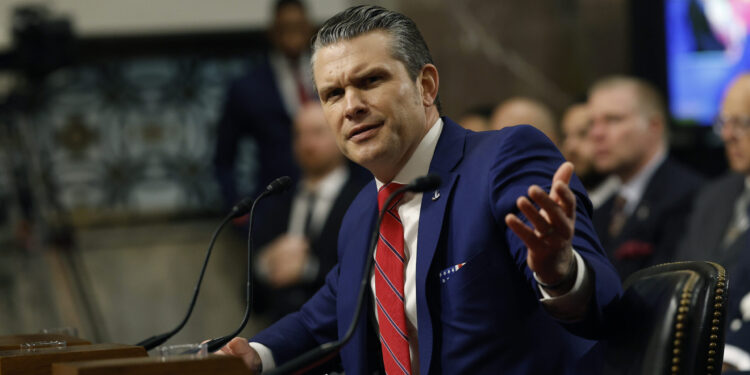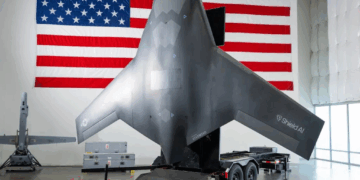The recent rhetoric from U.S. Defense Secretary Pete Hegseth reflects a marked escalation in the Trump administration’s approach to countering Iranian-backed Houthi activities in Yemen. Hegseth’s speeches, particularly his pledge of an “unrelenting” campaign against the Houthis until they cease attacks on U.S. and commercial shipping in the Red Sea, signal a return to a hardline “peace through strength” doctrine.
This stance contrasts sharply with the Biden administration’s perceived hesitancy, which Hegseth has criticized as enabling over 100 Houthi attacks on maritime assets. By tying the campaign to broader strategic goals—restoring freedom of navigation and reestablishing deterrence—Hegseth positions the U.S. as willing to expend significant military resources to secure a critical global chokepoint. However, the operational leak via a Signal group chat, inadvertently including a journalist, has cast a shadow over this policy’s execution, raising questions about competence and operational security within the Pentagon’s leadership.
Simultaneously, Hegseth’s pointed warnings to Iran underscore a broader geopolitical strategy aimed at disrupting Tehran’s regional influence. His assertion that Iran must “immediately stop supporting the Houthis” or face consequences aligns with President Trump’s historical “maximum pressure” campaign, which previously sought to economically and militarily isolate Iran. This rhetoric is paired with military actions, such as sustained strikes on Houthi targets, intended to degrade Iran’s proxy capabilities.
Yet, Iran’s response—denials of direct control over the Houthis and warnings of “decisive” retaliation—suggests a potential miscalculation. The risk of escalation looms large, particularly as Iran’s nuclear ambitions remain a flashpoint. Hegseth’s approach may force Tehran into a corner, but without a clear diplomatic off-ramp, it could precipitate a wider conflict, destabilizing energy markets and shipping routes further.
Turning to the Panama Canal, Hegseth’s upcoming visit to Panama amid Trump administration claims of Chinese interference highlights another theater of U.S. strategic concern. The canal, a linchpin of global trade, has become a focal point of U.S.-China rivalry, with Trump alleging Beijing exerts undue influence over its operations. Hegseth’s trip, framed around the 2025 Central American Security Conference, aims to reinforce U.S. partnerships in the Western Hemisphere and counter China’s economic foothold, as evidenced by the recent sale of canal-adjacent ports from a Hong Kong-based firm to U.S.-based BlackRock Inc.
This move, while symbolically significant, may overstate China’s actual leverage—Panama’s government has denied such influence. Nonetheless, the administration’s focus on “near abroad” threats, as outlined in Hegseth’s strategic guidance memo, suggests a broader reorientation of U.S. military priorities toward securing hemispheric dominance, potentially at the expense of resources elsewhere.
From a market perspective, these developments introduce both risks and opportunities. The sustained campaign against the Houthis could stabilize Red Sea shipping lanes, benefiting global trade flows disrupted by Houthi attacks—Suez Canal traffic has already dropped 82%, per UN data, slashing revenues. However, prolonged conflict risks spiking oil prices, particularly if Iran retaliates by targeting Gulf infrastructure.
In Panama, U.S. efforts to reassert control could bolster confidence in Western trade routes, though the economic impact hinges on whether rhetoric translates into tangible policy. Investors should monitor defense spending—Trump’s hinted $1 trillion Pentagon budget—and shipping stocks, while bracing for volatility in energy markets. Hegseth’s aggressive posture may deter adversaries in the short term, but the lack of strategic clarity and the Signal leak fiasco could undermine long-term credibility, leaving markets on edge as these policies unfold.









